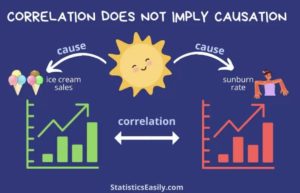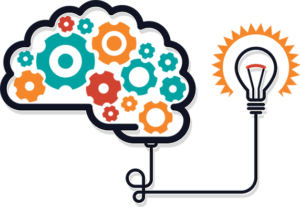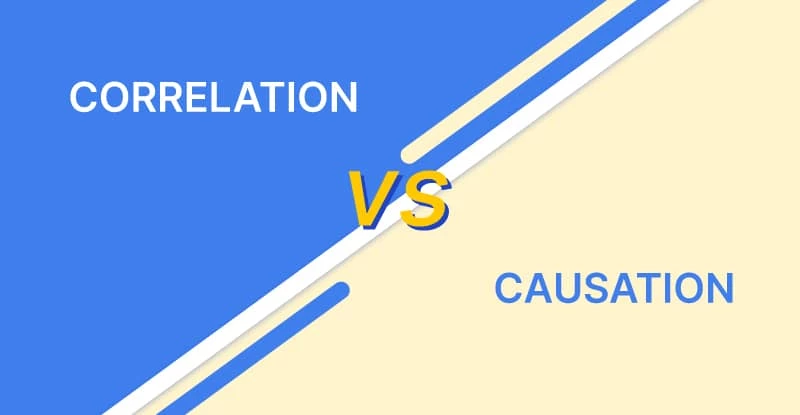Understanding Correlation vs. Causation
In my psychology course, and when reading scientific research in general, it is imperative for students to understand the difference between correlation and causation. As students in my class engage with various psychological research methods, it is crucial that they equip themselves with the tools of critical thinking, for example, by recognizing that correlation does NOT imply causation.
Understanding the Difference
Correlation refers to a statistical relationship between two variables, demonstrating how they tend to change together. On the other hand, causation implies a cause-and-effect relationship, where one variable directly influences (causes) another variable. It’s a common error to assume causation based solely on correlation – this is a mistake that can lead to incorrect conclusions in scientific research.
A Few Examples to Consider
Ice Cream Sales and Sunburns
During the summer months, ice cream sales typically increase. Simultaneously, the number of sunburns tends to increase. This is a correlation. It would be a mistake to conclude that buying ice cream causes an increase in sunburns. In this case, both variables are influenced by a third factor – the warm weather. Although a correlation exists between ice cream sales and sunburns, there is no cause-and-effect relationship between these two variables.

Consumption of fried food and anxiety/ depression
Significant research has been done on this topic. Here is an article stating that frequent consumption of fried food is associated with an increased risk of anxiety and depression. It is important to understand, however, that this piece of research did not investigate whether consumption of fried food causes anxiety and depression. The research determined only that there was a correlation between consumption of fried food and anxiety/ depression. In other words, there is a relationship between consumption of fried food and anxiety/ depression, but it does not tell us about the direction of this relationship. It could be that consuming fried foods causes anxiety/depression OR it could be that having anxiety/ depression causes one to consume more fried foods. Or perhaps there are other confounding variables affecting the results. Again, correlation does NOT imply causation.
The Importance of Critical Thinking
Psychological research, and scientific research in general, demands a discerning approach. Both researchers and consumers of research are urged to exercise caution when interpreting scientific studies. Critical thinking involves scrutinizing the methodology, identifying confounding variables, acknowledging the strengths and limitations of a study, and recognizing the difference between correlation and causation. Without this careful evaluation, we risk perpetuating scientific misconceptions and misinformation.






Great blog! Thank you.